CRA Collections Actions
According to the Canada Revenue Agency:
“…to reinforce the fairness and equity of the self-assessment system for those tax debtors who pay their taxes on time, the CRA will take a firm and efficient approach when collecting outstanding accounts from tax debtors who do not pay their taxes.”
In most instances, the CRA will send out an initial assessment of the taxes owed to the Canadian government. After thirty days, if the amount has not been paid in full, the CRA will communicate with the debtor via telephone or mail asking for full payment of the outstanding tax debt. In addition, interest charges will be applied on a daily basis. Afterwards, if payment in full has not been made nor has an attempt been made by the tax debtor to make a payment arrangement with the CRA, then a final letter requesting for payment will be sent. In this letter, the individual will be informed that he or she has ninety days to pay the outstanding tax debt or arrange a payment plan with an authorized representative of the Canada Revenue Agency. Otherwise, the CRA will initiate legal collections actions, which could include salary garnishment, bank account seizure, and/or home or other personal property liens, which can then be sold by the sheriff’s office in order to pay for the outstanding tax debt.
If you have been sent a notice by the Canada Revenue Agency and fear the CRA may proceed with collections actions against you, then feel free to call Canadian tax law firm, Barrett Tax Law, for a free legal consultation at 1-877-8-TAX-TAX to find out your options against the often heavy-handed CRA.
The information provided above does not constitute legal advice and should not be relied upon as such, since it has been written with a limited picture of the situation. In order to obtain proper legal advice, a lawyer must be aware of all of the details of your particular case. If in doubt, please obtain the advice of a lawyer. You may be eligible to receive a free telephone consultation with a tax lawyer at Barrett Tax Law. For details, call 1-877-8-TAX-TAX today or click here.According to the Income Tax Act, the deadline to file your taxes and pay any outstanding tax debt owed to the Canadian government is April 30th. Self-employed individuals have until June 15th to file their taxes, but any outstanding tax debt must still be paid by the April 30th deadline. Interest will be charged on a daily basis for unpaid tax debts not paid to the government of Canada by the prescribed deadline.
The information provided above does not constitute legal advice and should not be relied upon as such, since it has been written with a limited picture of the situation. In order to obtain proper legal advice, a lawyer must be aware of all of the details of your particular case. If in doubt, please obtain the advice of a lawyer. You may be eligible to receive a free telephone consultation with a tax lawyer at Barrett Tax Law. For details, call 1-877-8-TAX-TAX today or click here.Wage garnishment or salary garnishment is the act of a creditor obtaining a court order to have the debtor’s employer turn over a portion of the debtor’s wages to said creditor. Except for two specific cases, this can only happen once a judge rules in favour of the creditor and determines what percentage of your wages should be handed over to the creditor by your employer. Salary garnishment occurs if an individual has extensive debt and is thought to be unwilling or unable to pay the creditor.
The two cases in which a court order is not required for a creditor to garnish wages is: 1) when an individual turns in an assignment of wages to a credit union 2) when an individual owes unpaid taxes to the Canada Revenue Agency.
If you feel that your wages have been unfairly garnished, then call Barrett Tax Law today for a free consultation with a tax lawyer to find out your options at 1-877-8-TAX-TAX.
The information provided above does not constitute legal advice and should not be relied upon as such, since it has been written with a limited picture of the situation. In order to obtain proper legal advice, a lawyer must be aware of all of the details of your particular case. If in doubt, please obtain the advice of a lawyer. You may be eligible to receive a free telephone consultation with a tax lawyer at Barrett Tax Law. For details, call 1-877-8-TAX-TAX today or click here.Yes, your employer will know that your wages are being garnished because he or she must receive notice directly by the Canada Revenue Agency before they become legally obligated to garnish your wages.
The information provided above does not constitute legal advice and should not be relied upon as such, since it has been written with a limited picture of the situation. In order to obtain proper legal advice, a lawyer must be aware of all of the details of your particular case. If in doubt, please obtain the advice of a lawyer. You may be eligible to receive a free telephone consultation with a tax lawyer at Barrett Tax Law. For details, call 1-877-8-TAX-TAX today or click here.Title III of the Consumer Credit Protection Act states that if an employee’s wages are being garnished for the first time, then by law the employer may not fire that individual. An employer can only legally terminate the contract of an employee if said employee has had their wages garnished more than once.
The information provided above does not constitute legal advice and should not be relied upon as such, since it has been written with a limited picture of the situation. In order to obtain proper legal advice, a lawyer must be aware of all of the details of your particular case. If in doubt, please obtain the advice of a lawyer. You may be eligible to receive a free telephone consultation with a tax lawyer at Barrett Tax Law. For details, call 1-877-8-TAX-TAX today or click here.The CRA does not need a court order to legally garnish wages from a taxpayer who owes unpaid taxes. They may notify your employer directly and require wage garnishments to begin immediately.
The information provided above does not constitute legal advice and should not be relied upon as such, since it has been written with a limited picture of the situation. In order to obtain proper legal advice, a lawyer must be aware of all of the details of your particular case. If in doubt, please obtain the advice of a lawyer. You may be eligible to receive a free telephone consultation with a tax lawyer at Barrett Tax Law. For details, call 1-877-8-TAX-TAX today or click here.A tax lien can be described as a claim imposed by law against the private property of an individual owing tax to CRA. It is important to note that a tax lien can be implemented if a person owes taxes on personal property, real property, income or any other type of taxes.
If the CRA has placed a lien on your home or other personal property, call Canadian tax law firm, Barrett Tax Law, for a free legal consultation to get your questions answered at 1-877-8-TAX-TAX Canada-wide.
The information provided above does not constitute legal advice and should not be relied upon as such, since it has been written with a limited picture of the situation. In order to obtain proper legal advice, a lawyer must be aware of all of the details of your particular case. If in doubt, please obtain the advice of a lawyer. You may be eligible to receive a free telephone consultation with a tax lawyer at Barrett Tax Law. For details, call 1-877-8-TAX-TAX today or click here.The most obvious answer is paying your taxes in full and on time. However, if you find yourself experiencing financial hardship where you cannot pay the taxes the CRA has determined is owed to the Canadian government, then you do have options:
1. Contact a tax lawyer who will negotiate with the Canada Revenue Agency on your behalf for a payment plan that is fair and within your capabilities. Yes, you can call the CRA and attempt to do this yourself, but it makes more sense to invest a little now for a good tax lawyer, who has extensive experience negotiating with CRA agents, and save money in the long run since a tax lawyer will, in many cases, obtain a payment arrangement with lower monthly payments and little or no interest charges and even no additional penalties.
Free consultations with a tax lawyer are offered by Barrett Tax law, a Canadian tax law firm mainly serving self-employed individuals, small business owners and individuals involved with non-profit and charitable organizations across Canada, at 1-877-8-TAX-TAX.
2. If you decide to do this yourself without the assistance of a tax lawyer or other tax professional, then you should contact the Canada Revenue Agency to show your intent to pay the outstanding tax debt and attempt to make a payment arrangement with the CRA. Here, the authorized agent will look at your individual case and require details about your income and living expenses in order to gauge whether or not you could indeed pay your tax bill in full. They will need to see that you explored all possible avenues to pay the taxes owed to the Canadian government, such as mortgaging your home or obtaining a bank or personal loan. Only after the CRA is satisfied that you indeed cannot pay your tax bill in full will they consider a tax debt payment plan, which will effectively end any other collections actions the CRA may have been considering, such as freezing your bank account or placing a lien on your home – as long as the taxpayer follows through with the agreement and actually makes the payments to the CRA in a timely manner.
The information provided above does not constitute legal advice and should not be relied upon as such, since it has been written with a limited picture of the situation. In order to obtain proper legal advice, a lawyer must be aware of all of the details of your particular case. If in doubt, please obtain the advice of a lawyer. You may be eligible to receive a free telephone consultation with a tax lawyer at Barrett Tax Law. For details, call 1-877-8-TAX-TAX today or click here.The information provided above does not constitute legal advice and should not be relied upon as such, since it has been written with a limited picture of the situation. In order to obtain proper legal advice, a lawyer must be aware of all of the details of your particular case. If in doubt, please obtain the advice of a lawyer. You may be eligible to receive a free telephone consultation with a tax lawyer at Barrett Tax Law. For details, call 1-877-8-TAX-TAX today or click here.







